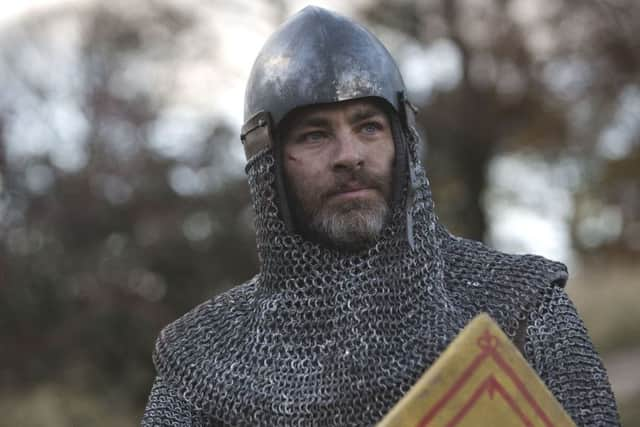'˜Robert the Bruce was ENGLISH', claims medieval historian
But although Robert the Bruce defeated the English at Bannockburn in 1314, it seems the historic triumph masked a hidden irony.
A new book by an eminent academic makes an astonishing claim: that Bruce was born in England.
Advertisement
Hide AdMedieval historian Fiona Watson claims he was “almost certainly born in Essex”.


Dr Watson tells how one 14th Century chronicler refers to Bruce as “of the nation of England” and says he was born in the village of Writtle, near Chelmsford.
She insists no contemporary evidence supports the traditional view he was born in his mother’s castle at Turnberry, Ayrshire.
Dr Watson says: “The truth may be unpalatable for some, for a chronicler from Southern England states categorically that Robert belonged to ‘the English nation’ and, more specifically, that he came into this world surrounded by the pleasant meadows, vineyards, grass and grain of Essex.
“There was a strong tradition in the South that Bruce was born in Essex, while there is no direct evidence he was born in Turnberry. In modern times it has been presumed Bruce would have been born at Turnberry, but the evidence points to Writtle.”
Dr Watson, a former history lecturer at Stirling University, has published several books, including Under the Hammer: Edward I and Scotland; Scotland: A History; and Macbeth: A True Story. She also presented the BBC’s 2001 series In Search Of Scotland.
Advertisement
Hide AdHer latest work, “Traitor, Outlaw, King”, is the first in a trilogy about Robert the Bruce, and focuses on his family background, his upbringing and the pivotal years leading to his crowning as King of Scots at Scone in 1306.
Previous research had suggested it was Bruce’s father, also Robert, who was born at Writtle. But Dr Watson points out that he was born in 1243, eight years before the family gained the lands -- given to Isobel of Huntingdon, King Robert the Bruce’s great grandmother, by England’s King Henry III.
Advertisement
Hide AdShe adds: “Given that Writtle was Robert’s favourite manor, it is quite believable his son should be born there.”
The Bruce family came to Britain from Normandy and were nobles and landowners on both sides of the Border. As a young nobleman in England, the Bruce was required to pledge loyalty to Edward I.
Dr Watson says it is “highly likely” the 22-year-old Bruce was knighted by Edward, the king who was dubbed Hammer of the Scots.
Bruce -- and his father -- even took part in the English invasion of Scotland in 1296, at a time when the family had lost its lands north of the Border.
But while Bruce was probably born in Essex and worked hard to curry Edward’s favour, Dr Watson insists he was heavily influenced in his formative years by a period as a foster child.
Her book, written to coincide with the release of £85 million Netflix blockbuster Outlaw King, starring US actor Chris Pine as Bruce, reveals he was fostered by another family -- either in the West Highlands or Ireland -- as part of a Celtic tradition that also saw his brother Thomas spend years in Ireland and grow to hate the English.
Advertisement
Hide AdDr Watson says: “While Bruce is likely to have been born in Essex, more important in terms of his outlook was the Gaelic influence.
“He would have spent his earliest years between Essex and Carrick. But fosterage was something noble families did and around the age of eight he would have gone to another household to learn how to be a young nobleman.
Advertisement
Hide Ad“Robert’s father decided to send his children to the Gaelic-speaking world -- where they would not be brought up with a love of the English. This would have been until around the age of 14 and would have given the young Robert a very different perspective on the world from the one he would have imbibed as a very young child.
“These were his formative years and I believe Robert’s first love was for not only Scotland, but the Highlands and the Celtic world. That’s where his heart is.”
Dr Watson says Bruce tried to “exploit every inch of advantage” to advance his family’s position, and ultimately gain the crown.
But, she adds: “While it’s easy to dismiss him as self-seeking, we cannot know for sure that he did not also burn with righteous indignation at the way in which the ancient kingdom of Scotland was treated by Edward I of England.
“We may suspect King Robert’s motives, but we cannot deny his achievements.”
* “Traitor, Outlaw, King” by Fiona Watson is available from Amazon, priced £7.64.
